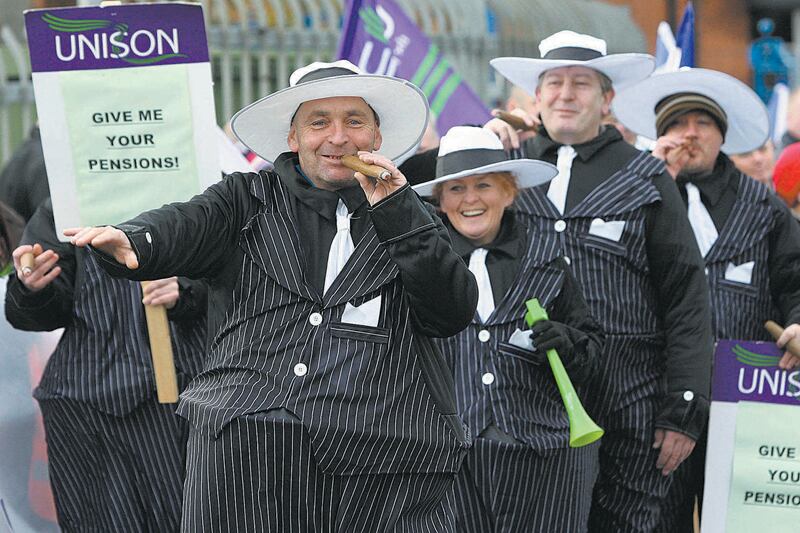If the date had been two weeks earlier you would have thought it was an April Fool's joke, but in the US April 15 is Taxpayer Pride Day.
The campaign encourages taxpayers to be aware of the good that tax dollars do to help create a better society in the United States.
Now, let's not get carried away with ourselves and order up those t-shirts emblazoned with a heart and the words `I love paying tax', but this taxing issue is no joke.
Too often we only see the downside of paying tax - the hole in our pay cheque.
When most people open their pay slips there is always a flicker of resentment when they realise how much of it has been deducted for income tax and national insurance. For most average earners this will be a considerable chunk of their total pay.
Self-employed people and small-business owners have the additional burden of having to file their own tax returns or paying an accountant to do so.
But even among the most cynical of us there is a general consensus that tax revenues are needed to provide essential services that benefit the society in which we live.
The health service, education, social services and infrastructure projects are all funded out of the public purse, although many would argue that not enough is being spent on one sector or the other.
I would quibble over the more-than generous wages paid to our MLAs, MPs, MEPs, plus their often eyebrow raising expenses, and of course the wages for Spads and...sorry I'll stop there before I run out of space.
However, while most of us are doing our bit to keep the public sector afloat, to keep people alive and to educate future generations, a wealthy elite avoid paying their share to the jurisdiction in which they earn their millions.
Off-shore tax accounts are legal, mostly, but they are the preserve of the extremely wealthy and while most of us have no choice but to pay our way in the jurisdictions in which we live, a select few do not seem to feel they have the same obligations.
As well as private taxation the public coffers of most countries are funded from taxes levied on profits made by businesses, big and small.
However, some companies which operate in a number of different jurisdictions will use their international status to avoid paying taxes in the countries where profits are generated.
One of the ways they can do this is buying in products or services at hugely inflated prices from a sister company located in a country where the tax rate is much lower. They then reduce their tax burden by deducting this cost from their profits.
According to Action Aid this practice is believed to be costing the UK exchequer at least £3.6 billion every year. That is money which could be spend on the health service, caring for the elderly, education or improving roads.
On a global basis, Oxfam estimates that the unpaid taxes paid by companies working in developing countries at $104bn (£66bn) every year.
That figure is, according to research group Development Initiatives, nearly five times more than the $22bn global spending on humanitarian relief for 2013.
According to the UK's Department for International Development, low-income countries do not want to be aid dependent. It said: "Tax avoidance and evasion undermine developing countries' ability to provide public services and increase their reliance on aid."
Tackling international tax avoidance would entail country-by-country reporting which would require large companies to provide reports to the tax authorities in the jurisdictions in which they worked. This would ensure transparency and ensure that profits generated in one jurisdiction were not being funnelled into another to avoid paying tax.
The resulting extra income generated for developing nations would be available for spending in the countries where the profits were generated rather than being squirrelled away into the bank accounts of the super-rich.
The experience of debt relief in developing countries has already shown the impact that extra funds can have on fighting poverty. A study of 10 African countries found a 40 per cent increase in education spending and a 70 per cent increase in health spending after four years of debt relief.
Tax should not be seen as a cost. It is a legal obligation to society, at a local and global level, both for the individual and for those businesses which operate in a particular jurisdiction.
As individuals we are obliged to pay our taxes to fund essential services and infrastructure in the jurisdictions where we live. As individuals we should be telling our public representatives that we are not joking when say we expect international businesses and the super-rich to do exactly the same.




